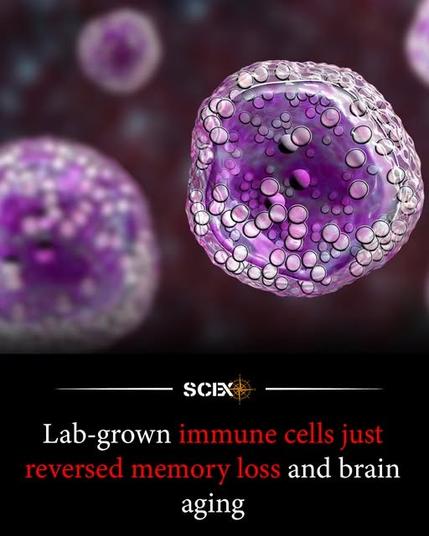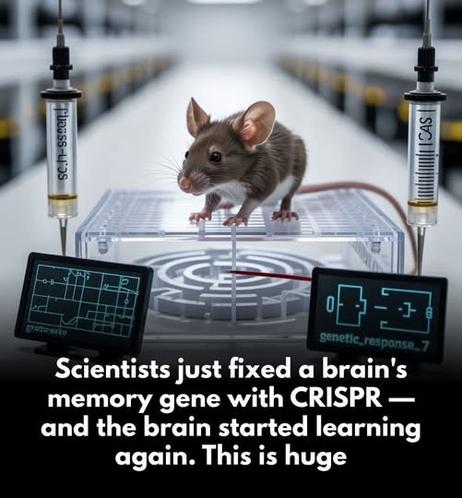🧠 Scientists reversed memory loss using lab-grown “young” immune cells
In a breakthrough study, researchers at Cedars-Sinai have shown it may be possible to reverse age-related memory decline and Alzheimer’s symptoms—at least in mice—by using lab-grown “young” immune cells.
These specialized cells, called mononuclear phagocytes, were generated from adult stem cells and infused into aged and Alzheimer’s-model mice. The results were striking:
• Mice treated with the cells performed better in memory tests.
• Their brains retained more mossy cells, which are crucial for learning and memory in the hippocampus.
• Their microglia—the brain’s immune sentinels—remained healthier and more active than in untreated animals.
Interestingly, the infused cells never entered the brain directly. Instead, researchers believe they worked indirectly—possibly by releasing protective proteins, shedding vesicles that reach the brain, or clearing harmful molecules from the bloodstream.
This discovery opens the door to a new class of stem cell-based therapies that could one day slow or even reverse cognitive decline in aging and neurodegenerative diseases like Alzheimer’s. The next step is understanding the exact mechanism—so this approach can move from mice to humans.
🔬 Source: Moser, V.A., Dimas-Harms, L.J., Lipman, R.M., et al. (2025). Human iPSC-Derived Mononuclear Phagocytes Improve Cognition and Neural Health across Multiple Mouse Models of Aging and Alzheimer’s Disease. Advanced Science.
Core discovery & science
#MedicalBreakthrough #Neuroscience #StemCellResearch #LifeSciences #FutureOfMedicine
Therapy & innovation
#MemoryRestoration #YoungImmuneCells #CognitiveHealth #Neurodegeneration #AlzheimersResearch
Impact & hope
#BrainHealth #InnovativeMedicine #AgeReversal #CuttingEdgeScience #HopeForPatients

